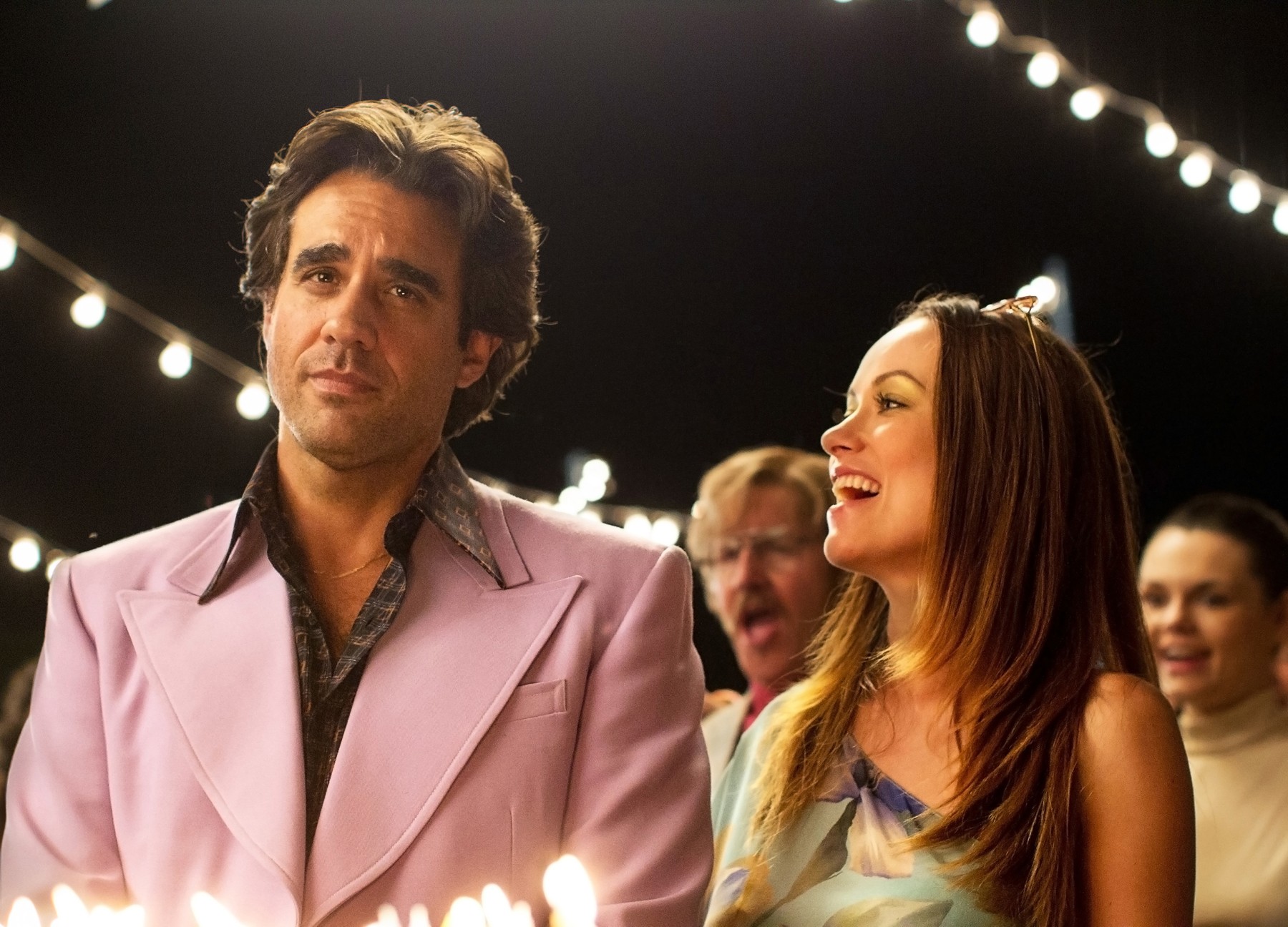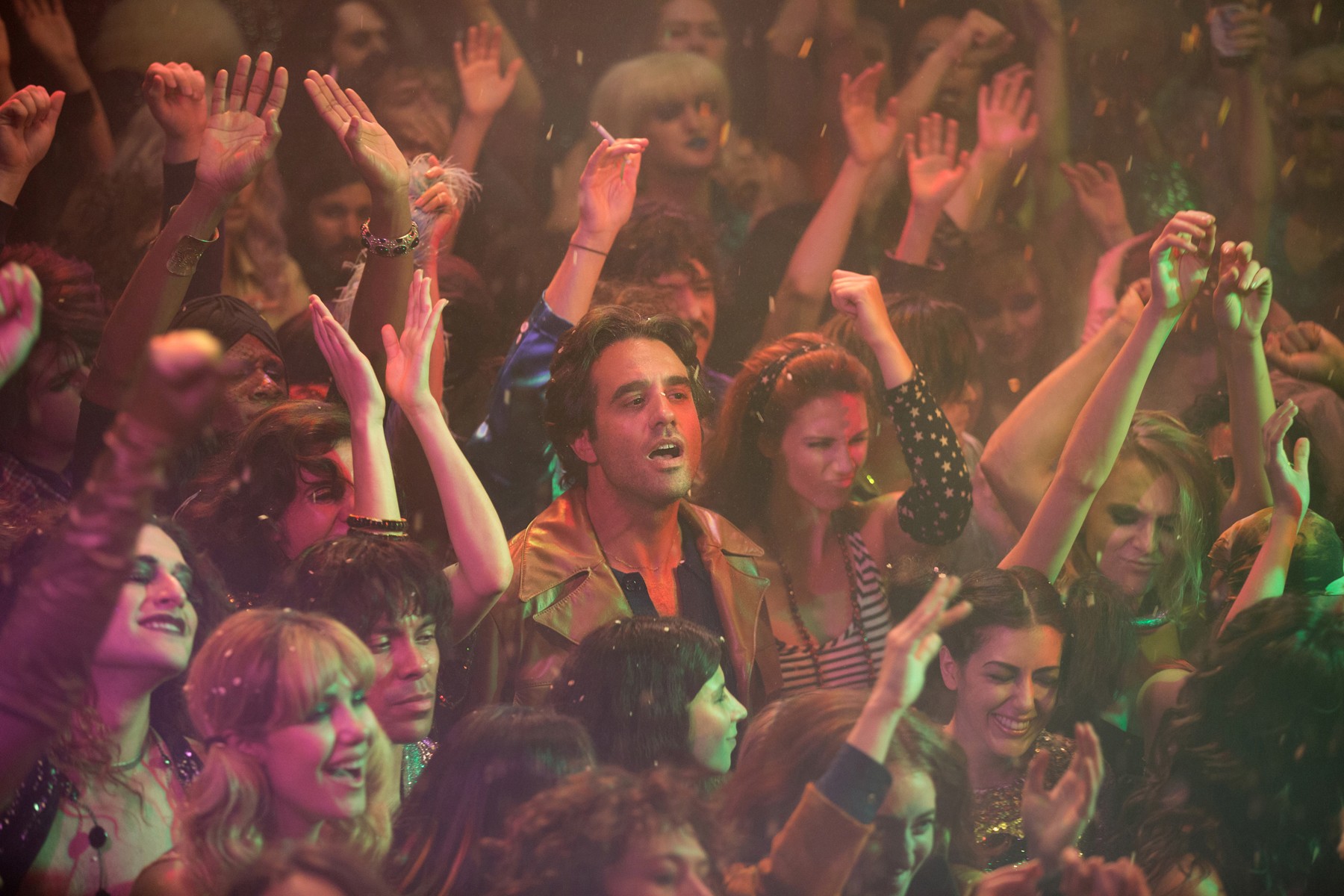
HBO’s Vinyl is the latest in a series of cultural hard-ons for the rough-and-tumble world of pre-Koch NYC: From novels like Rachel Kushner’s The Flamethrowers and Garth Risk Hallberg’s City on Fire to online photo galleries of graffiti-splattered subway trains and can-you-believe-this-juice-bar-used-to-be-a-crack-den slideshows, there’s a hunger for what Manhattan looked, felt and smelled like before developers began dropping glass boxes in the East Village like an alien invasion.
Set in 1973 — the same year Martin Scorsese released his breakout, Mean Streets — Vinyl is perhaps the apex of our collective pang for that glamorously grungy era. Scorsese created the show with Mick Jagger, Rich Cohen and Terence Winter, and he directed the two-hour pilot. He’s clearly having a blast: In one scene, he points his camera from the driver’s seat of a car toward its back window as a man comes charging up and then runs onto the vehicle’s roof; the camera follows his path over the hood and down the windshield as he runs off into the night.
That sense of play suits Vinyl’s story. The hero is Richie Finestra (Bobby Cannavale), head of the fictional American Century Records and a native Brooklynite who’s decamped to Greenwich, Connecticut with his wife Devon (Olivia Wilde), a former Factory Girl, and their two young children. Both he and Devon have gotten clean, but it’s no spoiler to say that Richie’s gone off the wagon: The first scene has him snorting coke off his rear-view mirror, which he tears off just for the occasion.
Richie’s relapse — chased with a night out at a rock show that literally brings down the house, collapsing the building — precipitates a drive to discover the newest, freshest artists in order to rejuvenate his struggling label. Enter Jamie Vine (Juno Temple), a young assistant at American Century with a desk drawer of drugs to sell and a dream of working in A&R. (Fun fact: Temple is dating Michael Angarano, who played the young version of William Miller in 2000’s Almost Famous — also set in 1973. And here we are, 17 years later, still sucking at the teat of ’70s rock nostalgia.) Wild-haired and hungry, Jamie seizes her opportunity when she spots Kip Stevens (James Jagger) trying to give the receptionist his demo tape. Kip’s group, a proto-punk band called the Nasty Bits, becomes the ticket to her dream job.
Cannavale and Wilde are fantastic, and Scorsese’s pilot sets the visual tone for the series much as he did with Boardwalk Empire. Visually, Vinyl is a stunner — a Toaster Strudel of a show, warm and bursting with color. The costume department lives up to the expectations of the time period (Devon’s caftan collection deserves a show of its own), and the digitally altered Manhattan cityscape is right out of those online photo galleries. Lightning-fast cutting matches the heart rate of the coked-out characters. But for all that, is there anything less rock ‘n’ roll than a prestige hour-long drama on HBO?

There’s the small matter that the hero of this slice of rock ‘n’ roll history is a record executive. (It’s wonderful, though, to see Cannavale stretch out after two decades of bit parts.) Vinyl doesn’t ignore the music industry’s long history of cultural appropriation, and a plot line about a blues singer and guitarist (Ato Essandoh) whom Richie discovered in the ’60s but sacrificed in order to form his own label adds texture to the show’s narrative of musical rebellion. But the story Vinyl really wants to tell is that of a white man discovering — and monetizing — culture. Whether the show is happy just to get off on the fantasy of unchecked white-dude power or ultimately intends to critique it remains unclear after the first five episodes.
The show pays just enough lip service in the way of plots about discrimination and sexism to ward off complaints that four old white men created it. But Jamie feels less like a person than some feminist robot created in a lab labeled “Strong Female Characters.” With her closet full of cute outfits and that cigarette dangling from her hand, she’s almost superhuman, lacking the vulnerability that makes Richie compelling. She’s not really a character but a bone tossed to women viewers — here you go, sweetheart, chew on this!
One of Vinyl’s biggest misfires is casting actors in the roles of very real and very famous musicians, like Robert Plant, Alice Cooper and Lou Reed. I guess they were going for verisimilitude, but — with the exception of the absolutely perfect casting of John Cameron Mitchell as Andy Warhol — these scenes come off like rock ‘n’ roll Halloween. “I’m laying down some vocals for a friend,” Alice Cooper mentions to an American Century exec. “You know Todd Rundgren?”
The emphasis on cultural touchstones of the period brings to mind Mad Men, with a ’70s record man in place of a ’60s ad man. Devon’s suburban malaise — remember, Betty Draper was a model before she married Don — evokes Mad Men’s first season, and here, fondue stands in for iceberg wedges and steak tartare. But a more apt comparison might be Aaron Sorkin’s one-season flop Studio 60 on the Sunset Strip. That was, infamously, a show about comedy that wasn’t funny; Vinyl is a show about rock that doesn’t.
As sumptuous as the slo-mo shots of rock bands thrashing onstage in the glow of colored lights may be, the high-gloss finish feels too polished, the downtown squalor too exquisitely art-directed. Those shots aim to suggest the danger of the streets, but they mostly suggest the art gallery; the spectacle screams “prestige TV,” with all the visual creaminess that implies. And it’s hard to make the creation of that rock music radical from the perspective of 2016 — it may sound like the revolution to Richie’s ears, but today it’s our consumerist wallpaper, constantly blaring out of radios or shopping malls or the mouths of American Idol contestants. The show takes such pains to depict its characters’ minds being blown by the newness of it all, but Vinyl feels kind of harmless — defanged by familiarity.


I’m in attraction with the cbd products and https://organicbodyessentials.com/products/cbd-capsules-25mg ! The serum gave my skin a youthful support, and the lip balm kept my lips hydrated all day. Eloquent I’m using moral, consistent products makes me quality great. These are in the present climate my must-haves after a fresh and nourished look!
CBD exceeded my expectations in every way thanks https://www.cornbreadhemp.com/collections/full-spectrum-cbd-oil . I’ve struggled with insomnia for years, and after infuriating CBD for the from the word go age, I at the last moment practised a full night of calm sleep. It was like a bias had been lifted misled my shoulders. The calming effects were gentle despite it sage, allowing me to inclination off obviously without sensibility punchy the next morning. I also noticed a reduction in my daytime anxiety, which was an unexpected but acceptable bonus. The tactfulness was a bit lusty, but nothing intolerable. Blanket, CBD has been a game-changer inasmuch as my nap and solicitude issues, and I’m thankful to procure discovered its benefits.